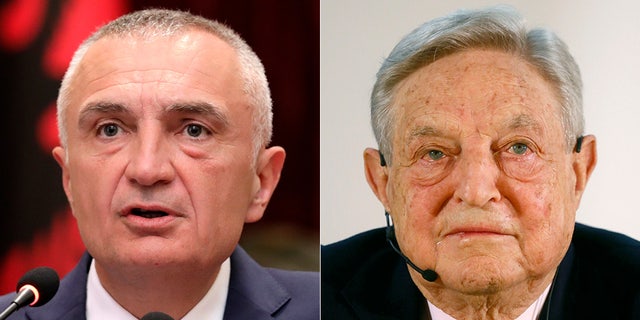SManalysis

Gjergj Erebara
Tirana
BIRN July 1, 2019
The international observation mission has criticized the lack of meaningful choice in the local elections in Albania, which the opposition boycotted, saying the ballot was held with little regard to the interests of the electorate.
Ambassador Audrey Glover, head of the observers mission, during a press conference in Tirana on July 1. Photo: Gjergj Erebara/BIRN
The International Observation Mission of OSCE/ODIHR, which came to observe the disputed local elections held on Sunday, said the near complete absence of opposition participation in the polls meant that the elections involved no meaningful choice.
In a preliminary report presented in Tirana on Monday, the mission said the elections were held “with little regard for the interests of the electorate”.
“The opposition decided not to participate, and the government determined to hold the elections without it,” the report stated, adding: “Voters did not have a meaningful choice between political options.”
Audrey Glover, the head of the mission, added her own question during the press conference: “Let me ask you a question. For what are elections held, for the politicians, or for the voters?”
Socialist Prime Minister Edi Rama proclaimed the elections a “clash of historical importance between past and future”, but the refusal of the main opposition parties to take part raises inevitable questions about the legitimacy of the results.
Only about 21 per cent of registered voters participated in the elections, in which, facing little or no competition, Socialist Party candidates unsurprisingly won all 61 municipalities in the country.
The Socialists, however, claim that the turnout rate was high enough to confirmation the credibility of the result in the eyes of Albanians.
The Socialist Party now controls both the organs of central and local government, besides being accused of already controlling or strongly influencing other institutions that should be independent.
Ambassador Glover, who has observed several previous elections in Albania, criticized the organization of the elections in an unilateral way by the ruling party.
She also said that the Socialist-controlled Central Electoral Commission had “interpreted the law in a creative way”, which left the administration of the vote in the hands of the Socialist Party.
“The politically unbalanced composition of election administration, opposition parties’ call on voters to boycott the elections and the conflicting interpretations of the validity of the president’s decree canceling the 30 June elections undermined public confidence in the process,” the report reads.
President Ilir Meta had attempted in vain to postpone the elections to autumn.
The report emphasized the “precarious work conditions” of journalists, which it said also left voters uninformed.
“Media [in Albania] are diverse but remain dependent on the political alignment and business interests of the media owners,” the report read.
“The practice used by the main political parties and public officials of providing the media with only pre-recorded or live footage from official and campaign events, while restricting access of media to the events, limited voters’ ability to obtain objective information,” it added.
The opposition expressed satisfaction with the report, hailing it as a confirmation of its claims.
Petrit Vasili, deputy chairman of the Socialist Movement for Integration, said in a televised statement that the report “clearly confirms the illegitimacy of the elections”.
Ambassador Glover declined to say whether the election result should be deemed valid or not. Asked by journalists whether they were real elections or not, she answered: “It belongs to the authorities of this country to decide what to do with these elections.”






